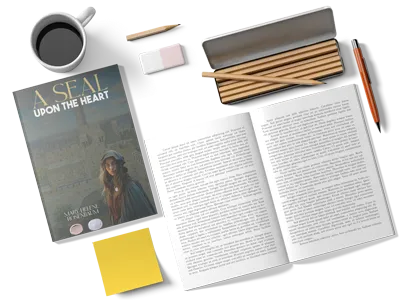Writing a novel is a complex and deeply personal journey that extends far beyond the initial drafting process. Once you have your manuscript, the next crucial step is to refine it into a polished and compelling book. This is where expert novel editors come into play. Their role is pivotal in transforming a raw manuscript into a manuscript ready for publication. This article explores the essential role of novel editors, their key functions, and how they can help unlock your book’s potential.
The Essential Role of Novel Editors
Novel editors are essential in the publishing process, providing a range of services that enhance the quality of a manuscript. Their work goes far beyond correcting grammatical errors; they delve into the intricacies of story structure, character development, and thematic depth. The goal of a novel editor is to refine your manuscript, ensuring it is engaging, coherent, and ready for its intended audience.
Developmental Editing: Shaping the Story
Developmental editing is one of the most crucial stages in Novel Editors. This type of editing focuses on the overall structure and content of the manuscript. A developmental editor evaluates the story’s plot, pacing, character arcs, and themes. They provide feedback on the manuscript’s strengths and weaknesses, suggesting revisions that can improve narrative flow and coherence.
For instance, a developmental editor might point out areas where the plot lags or where character development feels insufficient. They help authors address these issues by offering concrete suggestions for restructuring scenes or deepening character motivations. This type of editing is particularly important for novels, as it ensures that the story is engaging and well-constructed from start to finish.
Line Editing: Refining the Prose
Once the major structural elements are in place, line editing focuses on the finer details of the manuscript. Line editors work on sentence-level issues, improving clarity, style, and readability. They refine the prose by addressing awkward phrasing, redundant language, and inconsistent tone. This stage of editing ensures that each sentence contributes effectively to the overall narrative and enhances the reader’s experience.
Line editing is about more than just polishing prose; it also involves enhancing the author’s voice. A skilled line editor helps authors find the right balance between clarity and style, ensuring that the manuscript maintains its unique voice while being accessible and engaging to readers.
Copy Editing: Ensuring Accuracy and Consistency
Copy editing is a more technical form of editing that focuses on grammar, punctuation, spelling, and consistency. Copy editors meticulously review the manuscript to correct any errors and ensure adherence to standard language rules. They also check for consistency in details such as character names, settings, and plot points.
Copy editing is essential for creating a professional and polished manuscript. Errors or inconsistencies can distract readers and undermine the credibility of the story. A thorough copy edit ensures that the manuscript is free from distracting mistakes and presents a clean, cohesive narrative.
Proofreading: The Final Review
Proofreading is the last stage of the editing process. It involves a final review of the manuscript to catch any remaining errors or typos. Proofreaders look for minor mistakes that may have been missed in previous editing stages, ensuring that the manuscript is error-free before publication.
Proofreading is crucial for achieving a professional finish. Even small errors can detract from the reader’s experience, so a meticulous final review is essential to ensure that the manuscript is polished and ready for print.
The Benefits of Working with an Expert Novel Editor
Working with an expert novel editor offers numerous benefits, each contributing to the overall success of your book. Here’s how a skilled editor can help unlock your book’s potential:
Enhancing Storytelling Quality
A novel editor’s primary role is to enhance the quality of storytelling. By providing feedback on plot structure, character development, and thematic elements, they help authors create a more compelling and engaging narrative. Their insights can lead to significant improvements in the manuscript, resulting in a more polished and impactful story.
Providing Objective Feedback
As an author, it can be challenging to view your own work objectively. Novel editors offer an unbiased perspective, providing constructive feedback and suggestions for improvement. Their outside viewpoint helps authors see their manuscript from a reader’s perspective, highlighting areas that may need refinement and suggesting ways to enhance the overall reading experience.
Improving Readability and Flow
A novel editor ensures that the manuscript flows smoothly and is easy to read. They address issues with pacing, sentence structure, and dialogue, making sure that the narrative is engaging and accessible. By refining the prose and ensuring consistency, editors help create a more enjoyable reading experience.
Elevating Author’s Voice
Maintaining an author’s unique voice is crucial, even as the manuscript undergoes revisions. Expert editors work to enhance and preserve the author’s voice while improving the overall quality of the writing. This balance is essential for creating a manuscript that is both professionally polished and true to the author’s style.
Increasing Marketability
A well-edited manuscript is more likely to attract the attention of agents, publishers, and readers. By addressing issues related to story structure, character development, and technical accuracy, a novel editor helps increase the manuscript’s marketability. A polished and professional manuscript is more likely to stand out in a competitive market and garner positive attention.
Finding the Right Novel Editor for Your Manuscript
Selecting the right novel editor is a crucial step in the editing process. Here are some factors to consider when choosing an editor to ensure they are a good fit for your manuscript:
Experience and Expertise
Look for an editor with experience in your genre and a proven track record of working with novels similar to yours. An editor with relevant experience will have a better understanding of genre conventions and reader expectations. Review their portfolio and client testimonials to assess their qualifications and expertise.
Editorial Style
Different editors have different approaches to editing. Some may be more hands-on and involved, while others might take a more subtle and supportive role. It’s important to find an editor whose style aligns with your needs and preferences. Consider requesting a sample edit or having an initial consultation to gauge their approach and ensure it suits your vision.
Communication and Collaboration
Effective communication is key to a successful author-editor relationship. Choose an editor who communicates clearly and promptly. They should be open to discussing feedback and providing explanations for their suggestions. A collaborative editor will work with you to enhance your manuscript while respecting your voice and vision.
Budget and Timeline
Editing services can vary widely in cost, so it’s important to find an editor whose fees align with your budget. Be clear about the scope of work and the expected timeline for completion. A professional editor will provide a detailed quote and a realistic schedule for the editing process.
Conclusion: Unlocking Your Book’s Potential
Engaging an expert novel editor is a crucial step in unlocking your book’s potential. Through their specialized skills and insightful feedback, editors can transform a raw manuscript into a polished, compelling, and professional work. From enhancing story structure and character development to refining prose and ensuring technical accuracy, a skilled editor plays a vital role in bringing your literary vision to life.
By understanding the different types of editing and the benefits of working with a professional, you can make informed decisions about your manuscript. Choosing the right editor involves considering their experience, style, communication skills, and cost. With the support of an expert editor, you can confidently navigate the publishing process and present a manuscript that resonates with readers and stands out in the literary market.







